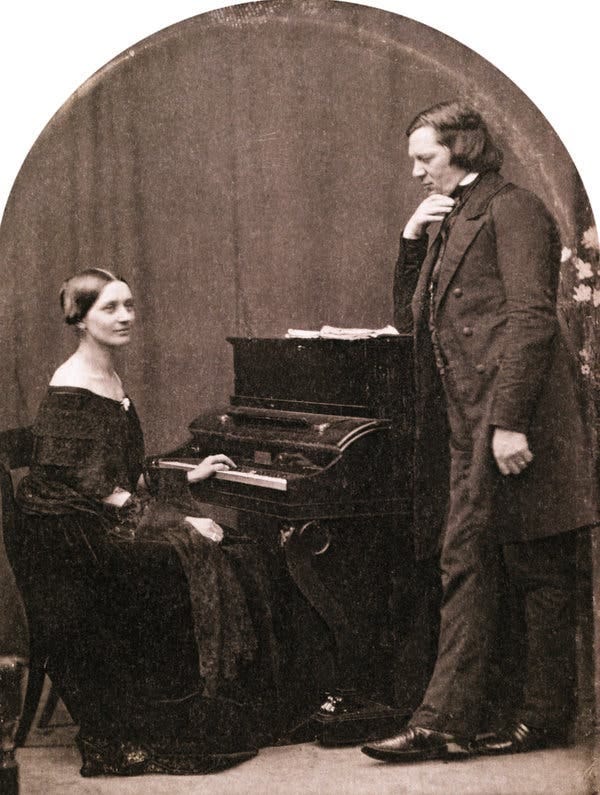Dear books and breakfasters,
I’m writing to you from a snowy, mid-March morning in Montreal. We had a hint of spring this weekend, causing most Canadians to behave like this, but as usual, it was a red herring. (A herring would be sweet to see, wouldn’t it?)
I’ve been quite swamped these days with numerous papers, performances, classes, apartment-hunting, and prepping for an upcoming contemporary music competition at the end of April (not to mention my sister’s nuptials in May!!), which has meant less time for books & breakfasting, but that’s not to say it hasn’t remained on my mind! When I haven’t been immersing myself in biographies of Alma Mahler, vocal pedagogy, or my doctoral research on Emmy Heim, I’ve been enjoying Monica Heisey’s novel, Really Good, Actually.
Set in Toronto, the novel follows the 29-year-old Maggie as she navigates her new status as Divorcée™. It was recommended to me by a close friend (also from Toronto) who lives in Europe, so it’s a nice way to maintain a sort of cross-continental bookclub. I’ve doggy-eared multiple pages that have resonated/made me laugh (“I am carrying myself with the easy confidence of a woman who both has a Tax-Free Saving Account and understands how one works.”). Apparently Heisey has been a staff writer for shows including Schitt’s Creek (everyone’s favourite!), Workin’ Moms (also good!) and Baroness Von Sketch, so it’s no wonder I’m enjoying it so much.
On the subject of marriage, what’s been lighting me up the most these days ~musicologically~ has been a discussion of Schumann’s song cycle Frauenliebe und Leben. In these days of cancel/woke culture/even second-wave Feminism, many have easily dismissed the song cycle as a problematic depiction of two mens’ take on a “woman’s love and lives.” My own research subject, Emmy Heim (who was twice divorced herself), refused to sing the cycle, asking, “What did Chamisso and Schumann know about women? How dare they presume to write about women in that way?” (Hamilton, 2012) Yet, I’ve always loved the song cycle and found it a deeply moving portrayal of love, devotion, and loss. (I even once had a lovely mentor “give” me her interpretation in a free coaching… a very special memory and gift.)
One article I’ve been reading for a class by Kristina Muxfeldt makes a particularly nuanced case for the song cycle. She argues that the poet, Adelbert von Chamisso, was filling a hole in 19th century poetic literature at the time by attempting to add a woman’s perspective to the popular genre of epic poetry cycles. Many of his lines were taken almost verbatim from women’s letters about their happy anticipation of marriage to their lovers. His work plunges into the woman’s psychology, attempting to share a woman’s interior life with a public used only to exploring the interiority of men. He also wrote in a time when people were beginning to advocate for marriage for love, including Robert and Clara Schumann, who married against the wishes of Clara’s powerful father, Friedrich Wieck (resulting in a epic court battle!). Some of Chamisso’s lines could have been taken from Clara and Robert’s devoted love letters. Muxfeldt even refers to men who performed the song cycle in the 19th century, in the same way women often perform[ed] song cycles written from men’s poetic perspectives.

Not to get on too much of a soapbox, but all of this reading has gotten me thinking about intersectionality. How much do we really know about Chamisso? Why are feminists and contemporary critics so quick to dismiss his writing from a woman's perspective as a man? Aren’t we a bit more nuanced now, as our society learns to see beyond gender categories? The legends surrounding these poetic cycles and moments in musical history so often descend into gossip and Quatsch, as the Germans call it (or Mishegoss, as my New Yorker grandfather would say).
NB: On that note, my entire Schumann course has had almost no mention of the much-rumoured love affair between Clara Schumann and Johannes Brahms, which, from everything I’ve learned about Clara, seems quite unlikely to have ever taken place.
Anyway, it’s a cycle I’ve always loved and one that speaks to me (even now, as what Heisey calls a Divorcée™ who still believes in the beauty of marriage!). Perhaps now is the perfect time to investigate it. Give it a listen (while following along with poetic translations), and let me know what you think.
(Here’s number one - all of them are on Youtube and translations can be found here.)
Thanks for reading! No recipe this month but please eat a delicious, well-buttered muffin in my honour. :) xoxo






When Graham Johnson was in Montreal earlier this year, one of the private group coaching sessions I did also had a performance of these. Graham said he believes the discussion around these songs/poems often incorrectly (in his opinion) centers around heteronormativity and gender expectations in marriage. According to him, the interesting thing about the narrator’s relationship with her husband is not that she is a woman and he is a man, but that she was a servant and he broke the class barrier and married below his station for love alone. From that perspective, at least, the texts were actually subversive of societal norms at the time!
Dearest Sara,
Brava, yet again, on everything you touch. You are quite an extraordinarily talented young woman, endowed with so many gifts. I treasure having had you in the CCOC and being privileged to observe you grow into a beautiful singer, thinker and writer, and artist. Yes, I still have that lovely card you made and sent me after Errol died. I am in Colorado, but will be back in Toronto in April. I would love to see you. 🎶Ann